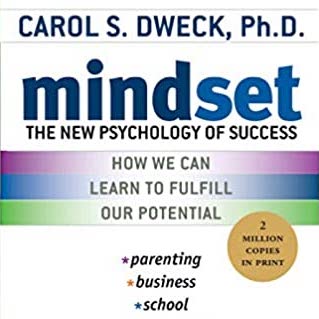First, a client gave me the book Mindset: The New Psychology of Success by Carol Dweck, and then about a month later, another client, Rissa, shared a podcast with me. Rissa was a guest on this podcast, and she talked about Changing Your Story.
So needless to say, I’ve been thinking about mindset a lot recently, especially as it relates to exercise and physical challenges.
TWO MINDSETS
A person with a FIXED MINDSET believes intelligence, talent, and other qualities (like athletic ability) are innate and unchangeable. So if a person with a FIXED MINDSET attempts to lift a weight heavier than she’s ever lifted before, and she fails, especially in front of an audience, she’s much more likely to point fingers (not enough chalk, someone walked in front of me and distracted me, the music sucked), ignore her coach’s feedback, and decide the entire training cycle was pointless because, well, she failed. Everyone thinks she’s weak. It’s humiliating. What’s the point?
By contrast, a person with a GROWTH MINDSET believes athletic ability can be developed with practice and effort. When a person with a GROWTH MINDSET misses a lift, she’ll immediately look to her coach for technical feedback, she’ll ask questions like, “What should we do differently next time?”. She’ll see the missed lift as an opportunity to learn and grow. She’ll be highly motivated and optimistic when she starts the next training cycle. And she will absolutely improve.
The same can be said for non-competitive physical challenges - like WEIGHT LOSS. A GROWTH MINDSET is crucial for success. The scale usually doesn’t move as fast as we’d like, and staying motivated can be tough. Having a GROWTH MINDSET gives us the ability to ask questions, to assess what’s working and not working. It helps us see a "static scale" as an opportunity to learn and it will help us stay motivated!
IS IT ALWAYS ONE OR THE OTHER?
Most of us are somewhere on a continuum of fixed and growth, and where we fall on that continuum often depends on the quality. Some of us have a growth mindset when it comes to intelligence but a very fixed mindset when it comes to the ability to dance well. Or sing on key. (I can’t hold a note, but then again, I’ve never had any formal training. So who knows what might be possible with a little expert instruction?!)
CAN MINDSET CHANGE?
ABSOLUTELY! Neuroscience has demonstrated that the brain can grow new connections, strengthen existing ones, and improve the speed of pulse transmission, even in adults. In other words, our brains can be remodeled over time. A person with a fixed mindset can slowly develop a growth mindset.
HOW?
- REWARD THE PROCESS, NOT THE OUTCOME. Focus on effort and process, not on the outcome exclusively. Did you get outside your comfort zone? Did you do your very best? Fantastic!
- GET EXPERT FEEDBACK. Having an expert on your team giving you real-time feedback shortens the learning curve, helps with motivation, and makes working toward your goal a lot more fun.
- ACCEPT FAILURE AS PART OF THE PROCESS. Rissa said something in her podcast that really resonated with me. “Anything worth doing is worth doing poorly.” C'mom, no one does anything perfectly on the first try. Give yourself permission to fail!
Having a GROWTH MINDSET will make working toward your goals easier and more enjoyable, and it might even give you the courage to cultivate new skills! So why not give it a try!?


